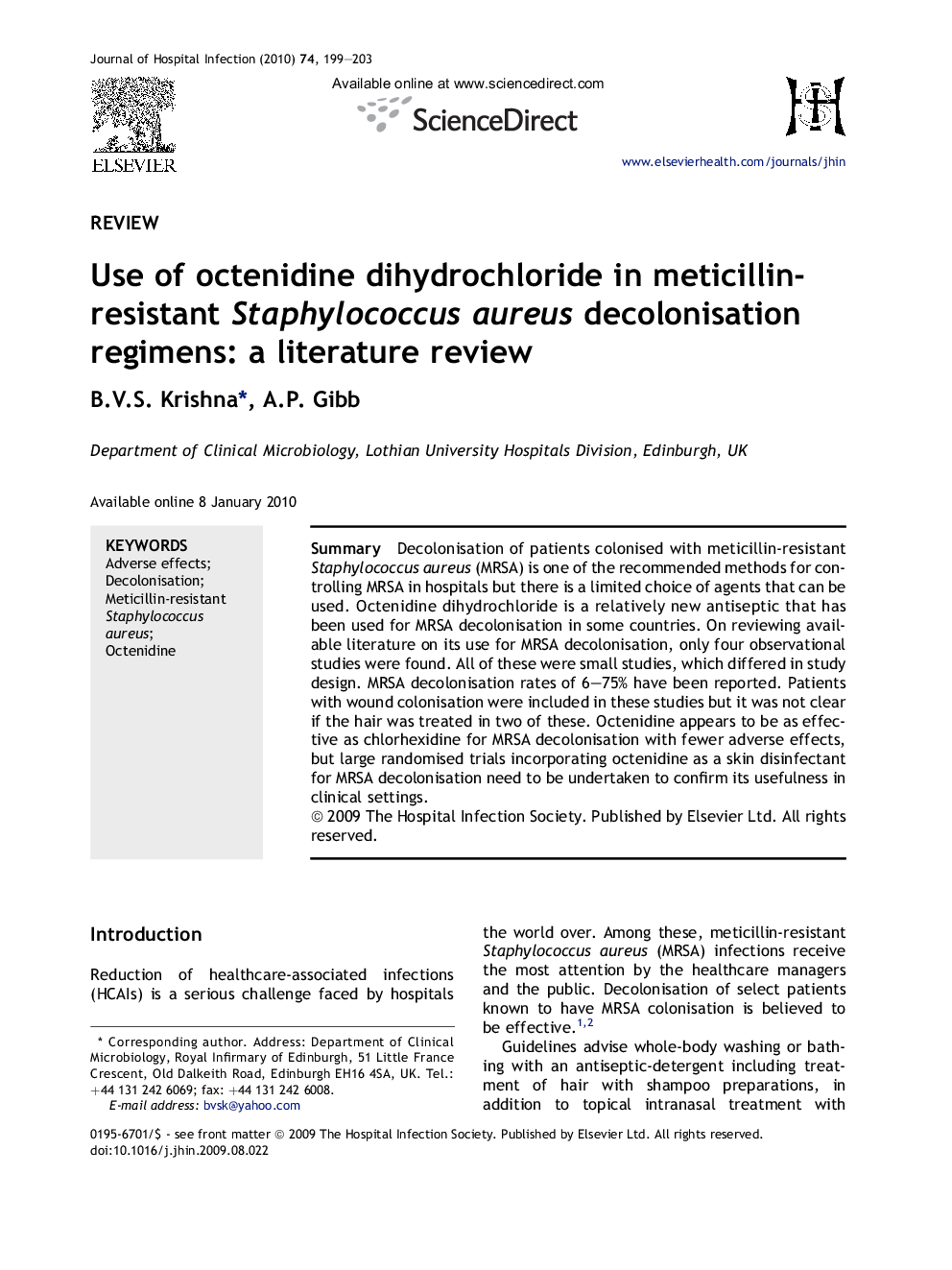| کد مقاله | کد نشریه | سال انتشار | مقاله انگلیسی | نسخه تمام متن |
|---|---|---|---|---|
| 3372931 | 1219275 | 2010 | 5 صفحه PDF | دانلود رایگان |

SummaryDecolonisation of patients colonised with meticillin-resistant Staphylococcus aureus (MRSA) is one of the recommended methods for controlling MRSA in hospitals but there is a limited choice of agents that can be used. Octenidine dihydrochloride is a relatively new antiseptic that has been used for MRSA decolonisation in some countries. On reviewing available literature on its use for MRSA decolonisation, only four observational studies were found. All of these were small studies, which differed in study design. MRSA decolonisation rates of 6–75% have been reported. Patients with wound colonisation were included in these studies but it was not clear if the hair was treated in two of these. Octenidine appears to be as effective as chlorhexidine for MRSA decolonisation with fewer adverse effects, but large randomised trials incorporating octenidine as a skin disinfectant for MRSA decolonisation need to be undertaken to confirm its usefulness in clinical settings.
Journal: Journal of Hospital Infection - Volume 74, Issue 3, March 2010, Pages 199–203